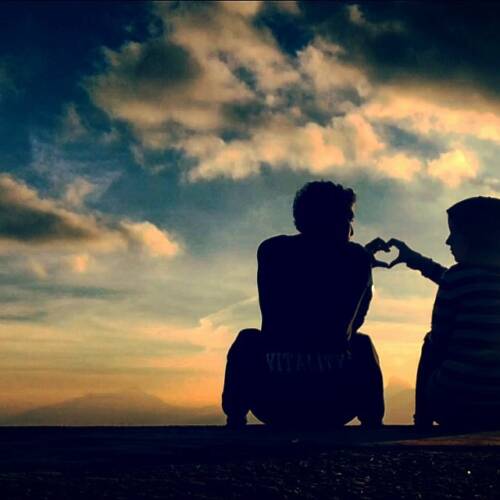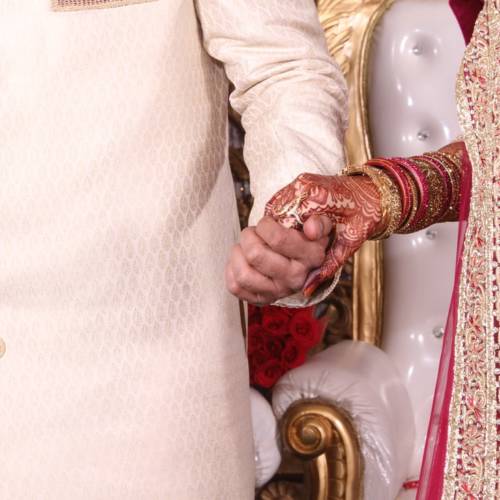
Should Muslims be dating?
18 Jan 2022There are very few hard and fast rules when it comes to Muslims and ‘dating’. Many may argue that the two words together are oxymoronic. With Muslim dating apps themselves being a new phenomenon, many are looking for guidance on how to navigate them, which to use and whether they should even be classed as ‘halal’ to begin with. And so, it is difficult to distinguish whether Muslim dating apps are ‘halal’ or ‘haram’.
To begin to understand whether Muslim dating apps are haram, it is important to understand the primary rules of ‘dating’ in Islam. Dating itself doesn’t have any Islamic rules, since it is a newly developed concept. It is also important to note that ‘dating’ in a conventional way can mean different things to different individuals, and so ‘Muslim dating’ as it is can too have vastly different meanings. The Quran is quite generic in its guidelines for interactions between men and women, however as far as Islamic teachings go physical intimacy before marriage is strictly forbidden, and Muslim women and men are required to act modestly in their interactions with one another, which includes in their speech to one another. Surah Nur in Chapter 24 of the Quran sheds some clarity on the matter in verses 30 and 31, saying:
“tell the believing men to lower their gaze and guard their chastity…Tell the believing men to reduce [some] of their vision and guard their private parts.”
Q 24:30
Similar advice is also offered to women in Surah Nur, where it says
“And tell the believing women to lower their gaze and guard their chastity, and not to reveal their adornments except what normally appears. Let them draw their veils over their chests, and not reveal their ˹hidden˺ adornments”
Q 24:31
However, outside of these arguably generic guidelines Muslims do face a particularly grey area.
One viewpoint here could be that since ‘Muslim dating’ apps can lead to a plethora of haram actions; one should just abstain from it all together. It isn’t possible for Muslim dating apps to be entirely ‘halal’ as this is dependent on the individuals using the app and these apps are open for public use attracting individuals with all different intentions. Some young people may simply be using these dating apps in the wrong way to excuse their actions, under the preface that it is being coined ‘Muslim’ dating. But does that mean that they are not useful all together?
There have been cases where young Muslims have used Muslim dating apps in the correct way, with their interactions online leading to marriage. The metro reported about a couple who met on Muzmatch and because of this 3 months later decided to have a nikkah. Within this same article another anonymous married couple discussed that the reason that they met was due to them meeting online during lockdown, simply out of boredom. Whilst these are success stories, many other Muslims may use these apps out of boredom and instead be lured into haram acts and relationships, with no way of confirming if the individual on the receiving end is looking for marriage. When it comes down to it there is no clear consensus on whether these apps are haram or halal. It all comes down to the intentions of the individual and so if utilised incorrectly and sometimes due to the naivety of an individual, they can quickly become haram.
The next question that arises is should these Muslims avoid these new apps? Here it is important to look at the difference between more conventional dating apps and new ‘Muslim’ versions of these such as MuzMatch and minder. What makes these new apps seemingly the ‘halal’ alternatives? Apps such as MuzMatch, Minder and Single Muslim allow users to filter their matches based off their religious practices such as their religious sect (e.g., Sunni) and whether they are a practicing Muslim and how soon after talking they wanted to get married. Whilst these apps may be useful in creating a space for Muslims and allowing you to meet someone with similar religious preferences to you, this does not automatically mean that the interactions will be halal. It is entirely up to the individual and within their own right to decide on how they will proceed. An editor from the fashion magazine recently reviewed MuzMatch and later learnt that she had been speaking to a married man, demonstrating how at times Muslim dating apps create a place for haram instead of halal. This still does not take away from the fact that these apps can still be utilised in an Islamic way, it is just circumstantial.
A more technologically advanced Muslim dating app could be considered the solution to this, with Iran recently introducing a government sanctioned Muslim dating app that used artificial intelligence to pair individuals together. This being said, a government sanctioned app would not be realistic within the western world. But it is interesting to see how the features of this app allows for it to be more along the lines of Islamic teachings. The app is called ‘Hamdam’ and introduces the users’ families together initially with the presence of service consultants from the app. The couple, if they choose to pursue things further, are accompanied by the same service consultants for any help during the early stages of their marriage. The feature that makes this app more along the lines of Islamic guidelines is the involvement of the families. It is important to note here that MuzMatch does give the option for a chaperone, the key word here being that the feature is optional and so once again using a Muslim dating app can be as ‘halal’ as the individual wants it to be.
There is no clear answer to the question of whether ‘Muslim dating’ and the use of Muslim dating apps is inherently ‘halal’ or ‘haram’. I would like to preface that the ambiguity in my answer stems from the fact that Islamic teachings in this area are often seen as vague as it is, and so arguably there is no clear boundary between ‘halal’ and ‘haram’ in some matters. It is truly up to the individual on how they decide to use the app and these apps can be used for good. However, it is more important to note that these apps do create the risk of Muslims both young and mature being lured into haram actions and tempted into haram relationships; and many excusing their actions due to these apps being coined as ‘halal’.










